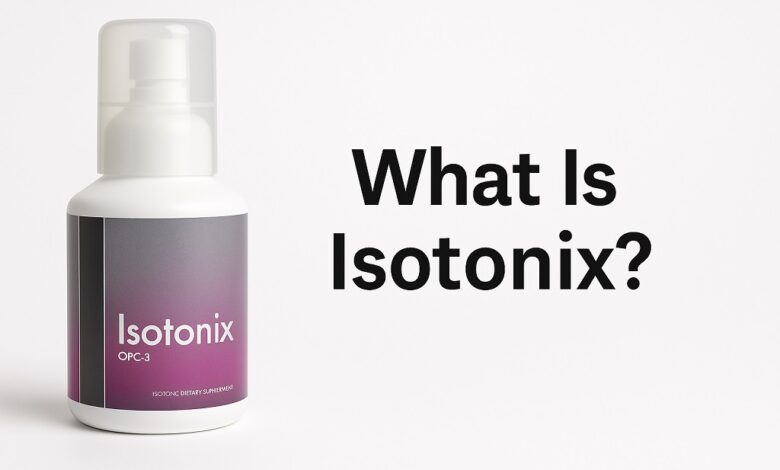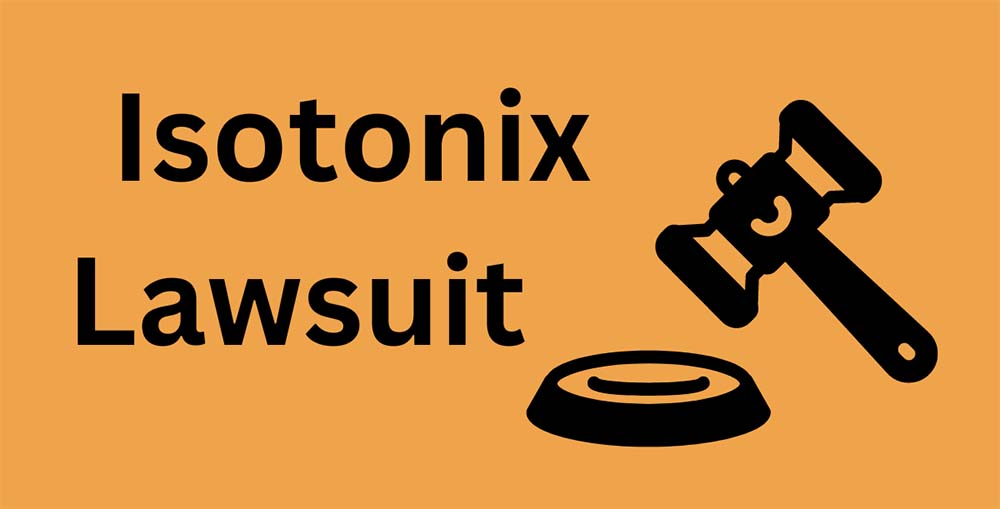The Isotonix Lawsuit: A Detailed Look at the FTC’s Landmark Case Against Market America

The health and wellness industry is built on promises of better living, but sometimes those promises cross the line from optimistic to allegedly deceptive. This was the central claim in a significant legal action often referred to by consumers as the “Isotonix lawsuit.” This case, officially led by the U.S. Federal Trade Commission (FTC), targeted Market America Worldwide Inc. and its sister company, SHOP.com, the creators and distributors of the popular Isotonix line of dietary supplements.
This article provides a full, detailed breakdown of the lawsuit, its allegations, the outcome, and the crucial lessons it holds for both the supplement industry and consumers.
What is Isotonix and Market America?
Before diving into the lawsuit, it’s essential to understand the players involved.
- Market America Worldwide Inc.: A multi-level marketing (MLM) company founded in 1992 by CEO James “JR” Ridinger. The company operates on a direct-selling model where independent distributors (called “UnFranchise Owners”) sell products and recruit others to join their sales network.
- Isotonix: A flagship brand of dietary supplements under the Market America umbrella. The brand is known for its “isotonic” delivery system. The company claims that because the powder is mixed with water and consumed on an empty stomach, the body absorbs the nutrients faster and more efficiently than with traditional pills or capsules.
- SHOP.com: An online shopping portal acquired by Market America, which serves as the primary platform for distributors and customers to purchase products.
The combination of a unique product delivery system and a powerful MLM distribution network made Isotonix a highly successful and recognizable brand in the supplement market.
The Core of the Lawsuit: What Were the Allegations?

The legal action was not a single class-action Isotonix Lawsuit from consumers but rather a federal complaint filed by the FTC in December 2016. The FTC, along with the attorneys general of North Carolina and Illinois, accused Market America and SHOP.com of making deceptive and unsubstantiated health claims about their supplements and operating an illegal pyramid scheme.
The allegations fell into two main categories:
1. Deceptive and Unsubstantiated Health Claims
The FTC charged that Market America made specific, scientifically unproven claims that their Isotonix supplements could treat, cure, or reduce the risk of serious diseases. These claims were made on product websites, in promotional videos, and through testimonials used by distributors.
Some of the most prominent examples cited in the complaint included:
- Isotonix OPC-3® (a powerful antioxidant blend): The companies allegedly claimed this product could prevent and treat serious conditions like cancer, heart disease, stroke, Alzheimer’s disease, and diabetes. They also claimed it could improve circulation and reduce the risk of deep vein thrombosis.
- Isotonix Calcium Plus®: The companies were accused of claiming this supplement could prevent and treat osteoporosis and osteopenia.
- Isotonix Multivitamin: Claims allegedly suggested it could help prevent eye disorders like macular degeneration and cataracts.
The FTC argued that these claims were not supported by reliable scientific evidence, violating the FTC Act, which prohibits unfair or deceptive acts in commerce. Dietary supplements are regulated by the FDA and FTC and are not allowed to be marketed as products that can diagnose, treat, cure, or prevent any disease without rigorous FDA approval as a drug.
2. Operating an Illegal Pyramid Scheme
This was the other critical pillar of the lawsuit. The FTC alleged that Market America’s business model primarily focused on recruiting new participants rather than selling products to genuine retail customers.
Key indicators of a pyramid scheme, as alleged by the FTC, included:
- Emphasis on Recruitment: The complaint stated that the company’s compensation plan heavily rewarded recruiting new distributors over actual retail sales to customers outside the network.
- Inventory Loading: Distributors were encouraged to buy large amounts of inventory to qualify for higher commission levels and bonuses, often leading to financial loss for those at the bottom of the pyramid.
- High Attrition Rates: The FTC claimed that the vast majority of Market America distributors lost money, a classic hallmark of a pyramid scheme where only those at the top profit.
The Outcome and Settlement
In January 2019, a federal court entered a final order to settle the FTC’s charges. Market America and SHOP.com agreed to a settlement without admitting any wrongdoing. The settlement imposed strict requirements and a significant financial penalty.
The key terms of the settlement included:
- A $4.8 Million Monetary Judgment: This was a substantial financial penalty intended to serve as a deterrent and provide funds for consumer redress.
- Ban on Deceptive Health Claims: The companies were permanently prohibited from making any health-related claims about their products unless they possess “competent and reliable scientific evidence” to support them. This includes claims made by third-party distributors, meaning Market America is responsible for policing the claims made by its entire sales force.
- Pyramid Scheme Safeguards: The order imposed strict rules to ensure the company operates as a legitimate MLM, not a pyramid scheme. These rules included:
- Prohibiting compensation for recruiting alone; rewards must be tied to actual sales to real customers.
- Requiring the company to verify that its distributors are not merely buying inventory to qualify for bonuses without selling it to end-users.
- Mandating clear disclosures about the typical earnings (or lack thereof) of its distributors to potential recruits.
Implications and Lessons from the Isotonix Lawsuit
The Isotonix lawsuit is a landmark case with far-reaching implications for the entire MLM and dietary supplement industry.
For the Supplement Industry:
The settlement sent a clear message that the FTC is actively watching the supplement market. It reinforced that:
- Structure/Function claims are allowed, but disease claims are not. A company can say a product “supports joint health” but cannot say it “treats arthritis.”
- The burden of proof is on the company. Marketers must have solid scientific evidence on hand for every claim they make.
- Companies are responsible for their distributors’ claims. An MLM cannot hide behind its independent sales force; it must actively monitor and control the messaging used to sell its products.
For Consumers:
This case serves as a critical reminder to be a savvy supplement shopper:
- Be Skeptical of Miracle Cures: If a product sounds too good to be true—especially if it promises to cure serious diseases—it almost certainly is.
- Understand the Business Model: Before joining any MLM opportunity, research the company thoroughly. Understand that the vast majority of participants in MLMs do not make a profit and many lose money.
- Look for Scientific Evidence: Don’t just rely on glamorous testimonials. Look for products from companies that invest in third-party testing and can point to published clinical studies (that are not funded solely by the company itself) to support their general wellness claims.
Conclusion: Beyond the Headlines
The “Isotonix lawsuit” was more than just a legal scuffle; it was a definitive regulatory action that drew a firm line in the sand. It reaffirmed the legal boundaries for marketing dietary supplements and operating multi-level marketing companies. While Market America and its Isotonix brand continue to operate today under the terms of the settlement, the case remains a permanent part of their record and a cautionary tale for the entire industry.
For consumers, it underscores the importance of critical thinking and due diligence, ensuring that the pursuit of health is guided by science and reality, not by exaggerated marketing promises.



